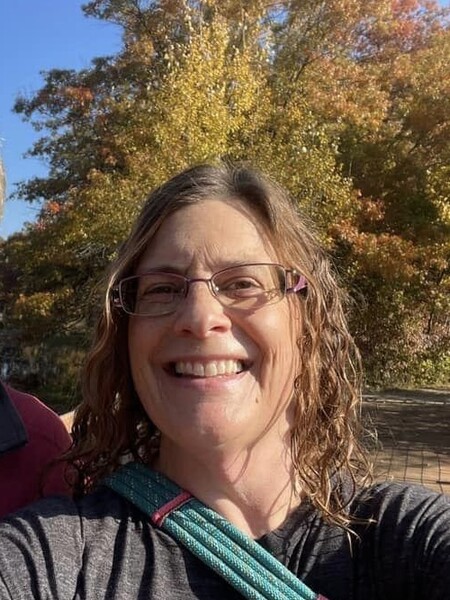Editor’s note: This blog post specifically addresses clergy burnout. Read about lay leader/volunteer burnout here.
Over the past few years, I have watched friend after friend step away from the ministry, most of them never intending to return. I have listened to community members complaining about their pastors, deacons, priests and other church staff members, calling us lazy, dull, and even useless. I have watched as members of my own parish have dropped away from regular attendance for reasons as unique and individual as each of them and have heard whispered accusations that there must have been more that I could have done to convince them to stay. You and I live in a world of noise and opinion during a time of change, loss, sorrow, and grief, and rostered leaders stand at the center of it all, anchored to the cross and buoyed by the Spirit. If pastoral leaders are not given an opportunity to secure their footing and lighten their burdens, that cacophony will sweep them away from the ministry altogether as it has so many others. A few years ago, it nearly swept me away, as well.
And yet here I am, continuing to serve alongside the members of the same parish I have now served for twenty years. I still delight in spending time together with these dear saints in worship, service and fellowship in the light of our living Lord after having emerged from the wilderness of grief and change that once threatened to pull me away from pastoral ministry. And I owe it all to the guidance of the Holy Spirit and my faithful congregational leaders who, in listening to the voice of that same Spirit, chose to see me as a human being who needed compassion and who stepped up when I needed it most.
The weight of grief
In October of 2021, I found myself in the midst of the longest run of funerals that I have experienced in my now 25 years of ministry, a number that ultimately totaled 28 funerals and burial services over the course of 24 painful months. People were seeking pastoral support in the midst of crumbling marriages, strained relationships between generations, financial challenges, depression, anger, and the weight of grief that we were all now struggling to carry. While I managed to take my sabbath day each week, my workdays were typically 15 hours in length.
That month, the beloved custodian at one of my congregations died. He was as much a force of nature as he was a human being, with a booming laugh and a work ethic forged in the rich soil of southern Minnesota farmland. He and I were castmates in our community play as well as coworkers in the congregation. His death, caused by a stroke, came with little warning. Even now, over 2 years later, our congregation and our community play cast often tell stories about him as we shake our heads, laugh, and wipe away tears.
The week after his funeral, my family took a trip to Michigan’s Upper Peninsula, where we hiked and toured and admired the foliage and sat by the chilly waters of Lake Superior, whose North Shore formed one of the property lines of my childhood home. It was a healing experience and the perfect time to get away. On the last morning of our trip, I went for a run on the gravel road beside our rental home and it began to snow. I was captivated by the beauty and, as the icy flakes hit my rosy cheeks, I became very much aware of something that I had fully forgotten, which was that I was alive.

The drive home that day felt interminable and I remember dreading returning to that grind, the endless hours of work, the anger, the grief, the loss. To this day I have no idea how I kept moving forward with absolutely no will to carry on as I had been. Having been reminded, even briefly, that I was alive, I had no interest in returning to the living death that my ministry felt like it had become. There never seemed to be any good news anymore. I was ready to be done with ministry.
- What are the pressures that pile up in your own life and ministry?
- When has grief become too heavy a weight for you to carry? Where do you look for support during times of loss so that you can share those burdens of sorrow?
- When in your own life have you felt ready to be done with a role that you fulfill? What changes might the Holy Spirit have been calling you to make in order to step into a more abundant life?
Confronting the reality of a life less abundant
By the sheer grace of God, I managed to trudge through Christmas and Epiphany that year without turning in my letter of resignation and by the beginning of Lent I felt like I was running on fumes. At that time, we were recording and editing our weekly worship services to be shared online, which was a new ministry we had adopted during Covid lockdown that had been added to my long list of weekly tasks in 2020. During a parish council meeting early in Lent, a kind parishioner commented that I looked tired. I fought back tears and agreed that I certainly was feeling very tired and very burned out. Within moments, and with no prompting from me, the council decided that there was really no further need to provide online worship services since I certainly had more than enough to do. It was a moment of sheer grace to be seen and to be treated with such compassion.
In the weeks that followed, I began to feel like I was getting my life back. We were still in the midst of that long line of funerals and crises of various kinds, but my schedule shrank back to something more typical for a parish pastor. I had time to be present with my family and friends and even to show up for myself, as well, with healthier habits for my body and soul. More time to rest, reflect and care for myself, however, led me to realize that my life in no way resembled the “life more abundant” our Lord invites us to in John 10:10. The more I prayed and considered, the more I concluded that my time in parish ministry would soon be drawing to a close. I simply could not continue forward as a pastor with things as they were.
Attentive and compassionate lay leaders make a world of difference
It was at about that same time that the treasurer at one of my churches approached me after worship to thank me for my continued leadership and to ask me what it might take to convince me to remain here awhile. He couldn’t possibly have known that I was beginning to imagine life outside of parish ministry. Whether he knew it or not, however, he was most certainly led by the Spirit to ask such a question, which set into motion a series of events that has brought healing and new energy into my life and ministry.
My response to his question was that I knew I needed some time away from ministry leadership. At our next parish council meeting, that same treasurer acted as my advocate and the rest of the church council followed suit. I was given a 6-week sabbatical at my request, since we live in a rural area where pulpit supply is hard to find, let alone pastors to provide emergency coverage, and then the council members insisted that I also be given my usual 5 weeks of vacation, as well. That night, several leaders volunteered to serve on a sabbatical committee, writing monthly articles in the newsletter explaining what a sabbatical is and why I would be taking one, and explaining what people should do in case of a pastoral emergency during my time away. They made announcements during worship reminding people that I would be taking time apart and that I would not be available to help them for those weeks.
And then they made themselves available to answer any questions or concerns that people might have. I have no idea whether or not anyone brought any concerns or questions to them, which is a sign that the committee was a success. To this day, no one in my parish has complained to me about my taking that time off, even though I serve in an area where the Protestant work ethic is something akin to law. That committee was essential to the success of my sabbatical.
- When have you sensed the work of the Holy Spirit in providing compassion and care when you needed it most? Through what means was that care provided? How did you respond to that gift?
- Clergy: When have you been ministered to by members of your own congregation? How might God be calling you to lower your defenses in order to receive care from a trusted few of those within your care?
- Congregation members: Under what types of circumstances do you suppose your pastoral leaders might appreciate a gesture of compassion? How can you show them your support as they serve?
Changing systems for changing times
Looking back on my time of burnout, I recognize within myself that same work ethic that has preserved rural life for countless generations and has been a banner of pride for pastors for centuries now. We work hard. I work hard. But as the old saying goes, “pride goes before a fall,” and in this case, my foolish pride led me to forget that we are church together and no one person, whether clergy or lay, should even attempt to work around the clock. I was so deeply embedded in my habits of trying to do it all that I could no longer remember why I was doing these things in the first place.
And, in all honesty, the sabbatical itself was lovely. It was a gift to spend time with family and friends and see a bit more of the world than I had before. But the real gift that I received was in being seen and listened to by my church leadership.
The week after I returned from my sabbatical I was given the opportunity to offer my sincere thanks to my church council members for their compassionate care of me in allowing me this time away. I also explained to them that they had accomplished two important things. In the first place, they allowed me the chance to heal and secured for the wider church a pastor who is very likely to remain in ministry for many more years to come. And in the second, they established themselves as a parish that cares for and about their pastor.
When my tenure draws to a close, I will make sure that there is a clearly written sabbatical policy in place so that any future pastors considering interviewing for this call will see that this is a community that sees their pastor as a person and partners with them to keep them healthy as they serve.
For more on…
Historical and cultural shifts away from the voluntary association model
Shifting to team-based ministry
How to talk about a pastor’s sabbatical
How a clergy sabbatical is not an end in itself




Beautiful. I am so glad you had a council that supported you so completely! There are many non-rostered church professionals (myself included) that have not had this support and have been forced to walk away. Healing is hard to come by. My hope is that congregations, outdoor ministry sites and all ministries will read your article and look for ways to support every member of ministry.
We are glad that this opportunity was given to you and that you found it helpful in your ministry to us and to others.